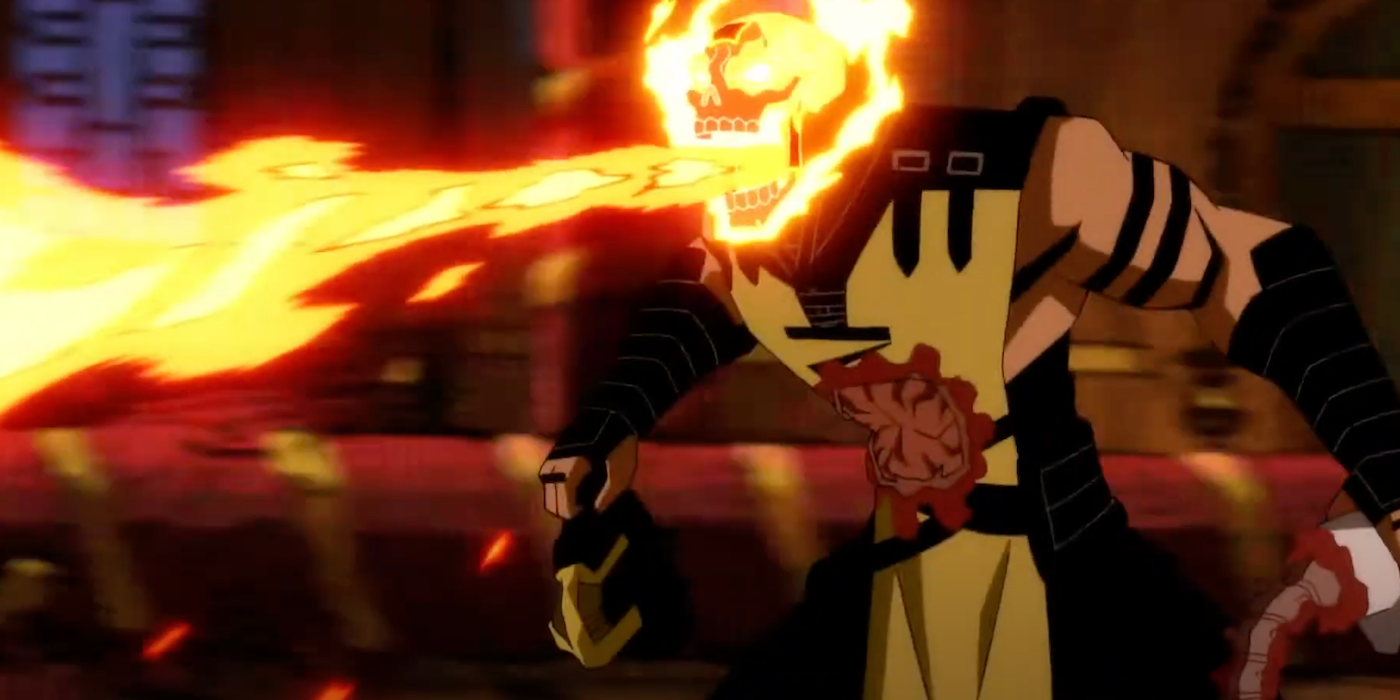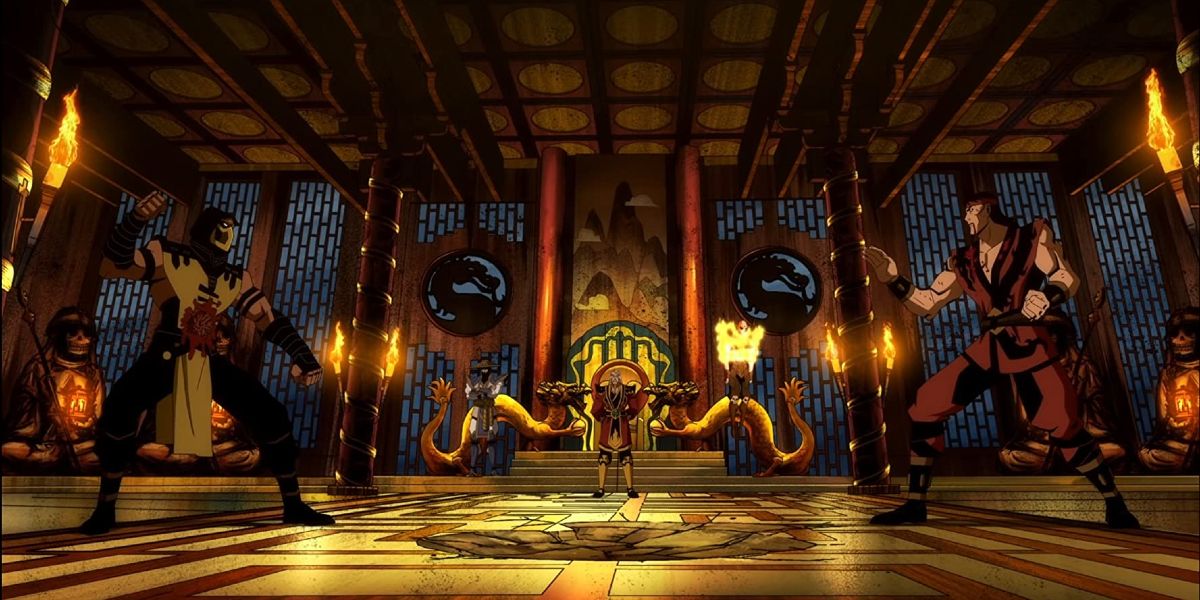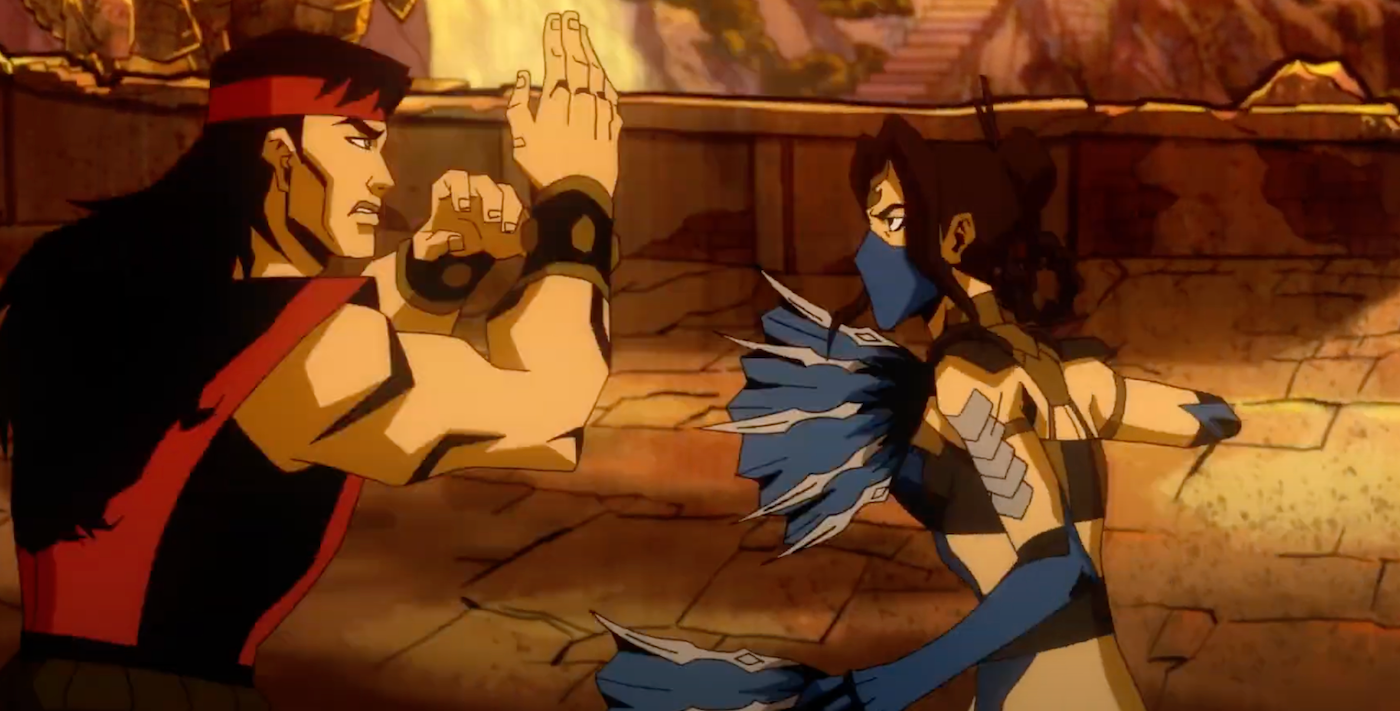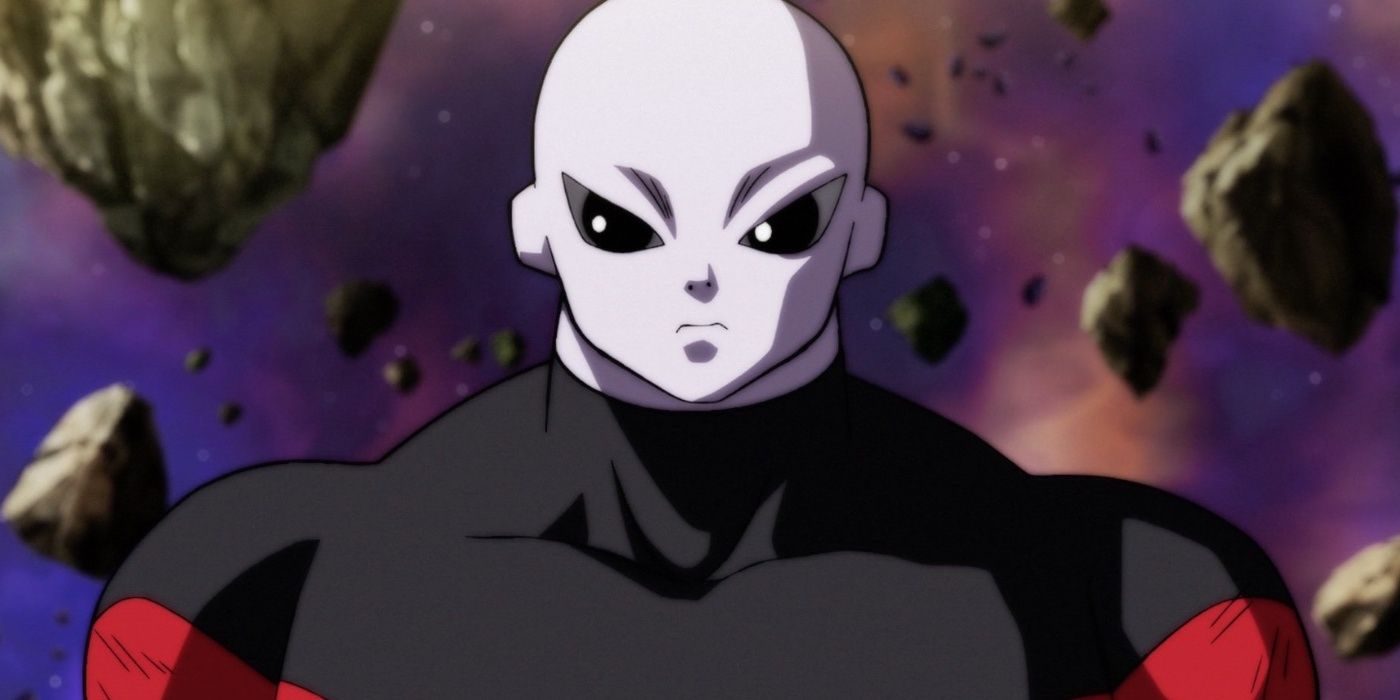As the iconic Mortal Kombat franchise nears its 30th anniversary, the immersive story has been adapted into a new animated film: Mortal Kombat Legends: Scorpion's Revenge. Recreating the events of the original 1992 fighting game, the movie pulls no punches in its violent, visceral content, keeping it in spirit with its no-holds barred video game source material. And true to its title, the film largely takes place from the fan-favorite fighter Scorpion's perspective, as the ninja rises from the grave to take part in the interdimensional martial arts tournament and gain revenge on his family's killer.
In an exclusive interview with CBR, voice actor Patrick Seitz -- who has voiced Scorpion since 2008's Mortal Kombat vs. DC Universe -- reflects on expanding his take on the character in the animated film, what makes Scorpion so popular and how he compares to Seitz's work voicing Jiren, the final antagonist in the acclaimed anime series Dragon Ball Super.
You've voiced Scorpion for a long time but I think this is the most time and deepest you've delved into the character. How has it been getting in his headspace for Scorpion's Revenge?
Patrick Seitz: It's nice, it's sort of the best of both worlds. It's everything about the character from the various iterations in all the games but then, like you said, this being a different format and getting to spend more time in his head and get those moments that maybe really wouldn't sort of fit within the single story mode of a fighting game. It's been for me to go in and be like "Okay, cool. Character I know, scenes I know, familiar tropes," but, to also tease out these moments, it feels, for lack of a better term, luxurious, like "Oh, look what I get to do!" It's fun!
What about this process and this format has surprised you even after all your time with the character?
I don't know if it was a surprise or just validation, but the movie really moves. It covers a lot of ground in [its runtime] but you do get some moments with him before he's all about vengeance with a capital V, and that's really fun. Let's put this way: This character is always about vengeance and I'm down with that; I'm sucker for redemption arcs and I'm a sucker for revenge arcs. Show me a character like Iago from Othello where he's like "I'm going to do all this horrible wrong stuff but then, at the end of the play, be like 'Peace out, go ahead and torture me, I don't care. I did my thing.'" I love that, it's like catnip for me.
But to be able to have a character like Scorpion; he does a lot of murdering! But it's all coming from a reason; that's nice too. It's good to have a place where you can sort of hang your thematic hat on, with an inciting incident that carries the weight of the moment and that's been fun. Again, it's not a long moment but it sort of informs everything after it. He kills aplenty and one of the great things about the movie, not to sound like a Philistine, this is Mortal Kombat: It's violent, it doesn't pull any punches, it is a hard R in a sort of a way that you could almost never do it as live-action movie. The animation, in a way, is the only thing that keeps it from being too much. But he's got his own moral compass, as blood-stained as it is. There's things he'll do and there's things he won't do; places where he draws the line. He's not this unthinking sort of avatar of vengeance -- which would be really easy to portray a character in that way -- so the fact that they don't is cool.
You mentioned the violence and, even though you're no stranger to the franchise, the movie really goes for broke early, especially with your character. Did reviewing any of the footage set you back or catch you off-guard?
[chuckles] I remember watching it and, five minutes into this movie, thinking "We are literally 300 seconds into this movie and I've seen someone's brain! We are keeping to a very tight schedule!" Yeah, I mean, reading it on the page is one thing but then when we went in to record dialogue and went in, after the fact, to be able record the combat stuff and the fight inserts specifically to the footage to make sure we got stuff that was really bespoke for the moment, seeing that stuff play out, just going "Damn! They are not holding back!"
There's a fight very early on the movie, in the first ten minutes, that really sets the tone and lets people know we're taking the kids' gloves off, we're not playing around here. I remember for that one, telling the voice director Wes Gleason -- whom I've worked with before and he's great guy and always judicious about everyone's vocal health -- "Hey, this is going to sound crazy and I don't mind doing it piecemeal but do you mind just going for a run of this fight scene? Just leave it rolling and I'm going to chase it and see what happens. Maybe use it, maybe don't but just let me try." And he was like "Are you sure, dude?" and I went "Yeah!" because I'm dumb. And I went for it and I'm not sure was getting used and how much was cut up it but, that first fight, by the end of it, Scorpion is panting and catching his breath. And I think the audience is too! It sets the bar really high and lets you know right out the gate that this is a Mortal Kombat movie, this is not some after-school special.
You were mentioning vocal health and the first thing that comes to mind with vocal health in animation is Dragon Ball. You voiced Jiren in Dragon Ball Super and all the subsequent video games. What is the difference in voicing these two vastly different characters, with vocal health and character work.
The nice thing about getting to be Jiren in Dragon Ball is it happened late enough in my career where I knew to be careful. If someone had dangled the opportunity to be Jiren when I was 25, I would've gone all-out and hurt myself. Not that I didn't go all-out but, at 42, I was a little more mindful of self-preservation than if I had done it at 25. In Dragon Ball, you know what you're getting into.
I was actually surprised when they gave me the first episodes with Jiren. He's so overpowered and they're setting him up to be such a badass that he didn't really have to try at all. So I was getting these episodes where I didn't really have to do anything exertion-wise but I knew I was going to eventually have to pay the piper. I knew we were going to get down to it and I was going to be fighting Goku and Vegeta and there was going to be yelling and it's going to be crazy. But stuff like that, you do the best you can and work with people that are mindful about vocal health. I think that's something that people are a lot more aware of recently and you obviously go for the yells when you have to. With Jiren sometimes he would scream for twelve seconds and, sometimes in Japanese, they would scream for twelve seconds and sometimes they edited it together and made it work but we would go for it. And it feels good, that expectation with Dragon Ball, these guys are the old guard. You've got to be able to show up and keep up because you know these guys twenty years ago weren't [concerned about vocal health], they were just doing it, screaming and screaming all day and screaming some more. So you definitely feel proud of yourself when you can keep up with that level of vocal masochism.
You've done a bunch of anime work, My Hero Academia, Attack on Titan; all the greatest hits at this point. What do you find is the difference between working with anime and Western animation?
I think the big difference is the freedom when it's not [already made]. You're not constrained by the lip movement or timing or animation and I do love that challenge as a voice director and script adapter, it's like this is what it is. Visually, the elements are locked in and then we have to go about figuring out to make it sound organic and natural in English and not like a dub with an air of apology going "Well, we did the best we could but the timing is weird and that line's got a weird hitch." I'm a firm believer that there's always a way to make it sound like it originated in English and sometimes you have to get creative.
And at this point I've done more anime than Western animation but, with Scorpion's Revenge, it's such a luxury to be able to just do what's right for the scene and the character, and not have that extra specter of having to [adjust] to timing and line breaks.
With the 3oth anniversary of the Mortal Kombat franchise coming, what does it mean to you and how do you see Scorpion a decade on?
He's this cool, iconic character that I've been lucky enough to play and I feel like it's a stewardship. You always get attached to your characters but, unless its your own intellectual property that you've created, they're not your characters in a strict sense. You get to portray them however long that you do but you're not the king, you're the regent, you're keeping that throne warm for however long until the king comes back from the Crusades -- that's a weird Crusades-themed analogy.
It's been such a comfort to get a character like this; parts come and go, but to have Scorpion pop up is like we're getting the band back together and doing the thing. There's definitely an appeal and a comfort to it and, I looking back to when I first started voicing Scorpion for Mortal Kombat vs. DC Universe, my career was in a different place and I was even less confident in my own work than I am now. It's nice to be able to look back and think this thing really hit for me when I didn't imagine that it could. It's meant a lot to me to keep chugging along and Scorpion is like you're super-violent, super-brooding friend you get to see every summer at camp. You catch up, you make some lanyards, you pull out some spines and then you say goodbye for a year or two -- that's another weird analogy [laughs].
Just to close it out, what do you hope audiences take away when they watch Scorpion's Revenge?
I hope that when they sit down and watch the movie that they see in all these iterations and all these games for nearly three decades, there's still stories to tell that feel fresh and ways to explore these characters. This checks off all the boxes but it also has surprises and cool twists. This is definitely not a retirement tour, it's still chugging along, it's still got legs.
Mortal Kombat Legends: Scorpion’s Revenge stars Joel McHale as Johnny Cage, Jennifer Carpenter as Sonya Blade, Patrick Seitz as Scorpion & Hanzo Hasashi, Steve Blum as Sub-Zero, Artt Butler as Shang Tsung, Darin De Paul as Quan Chi, Robin Atkin Downes as Kano, David B. Mitchell as Raiden, Ike Amadi as Jax Briggs, Kevin Michael Richardson as Goro and Grey Griffin as Kitana & Satoshi Hasashi. The film is available now on digital HD and will be available on Blu-ray/DVD on April 28.




